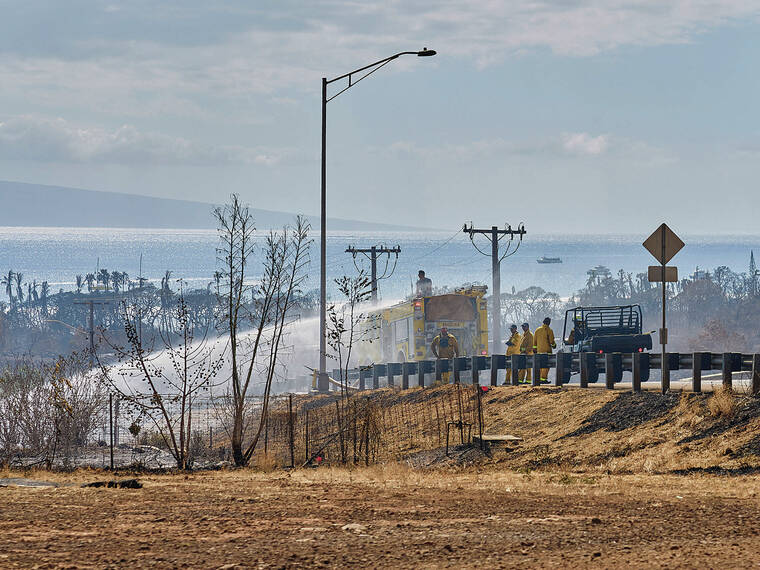Saiki returns to help control insurance coverage, costs

STAR-ADVERTISER
Scott Saiki
Former House Speaker Scott Saiki has returned to state government service following his 2024 election defeat — this time to help consumers obtain and afford homeowner’s insurance.
For the last several weeks, Saiki has served as a special assistant with the Department of Commerce and Consumer Affairs, which has a mandate to protect Hawaii consumers.
Saiki’s 30 years of experience in the House includes seven years as speaker, when he worked with the rest of the state Legislature and Hawaii’s governors, navigated property insurance legislation and represented a district that includes high-rise condos in Kakaako and parts of Ala Moana and downtown.
It all gives him the background to tackle the complex issues dealing with the insurance industry and its decreasing condo coverage while premiums rise, especially for condo owners, political analyst Neal Milner said.
“It’s a good fit for him,” Milner said.
Saiki, 60, told the Honolulu Star-Advertiser following his primary election defeat in August that he had no interest in pursuing any future elected office or returning to practicing disability and personal injury law.
Don't miss out on what's happening!
Stay in touch with breaking news, as it happens, conveniently in your email inbox. It's FREE!
He said, at the time, that he would take until the end of 2024 to decide his next step.
In between, Gov. Josh Green approached Saiki with an offer to help his administration get on top of Hawaii’s property insurance situation and help change the way insurance gets addressed in Hawaii.
Saiki finally agreed, joining DCCA as an employee last month.
“Insurance affects everyone in some form,” Saiki told the Star-Advertiser.
He served in the House when Kilauea erupted in the Puna District of Hawaii island in 1990, wiped out over 100 homes and triggered the exodus of insurance companies willing to sell lava insurance.
In response, the Legislature in 1991 created the nonprofit Hawaii Property Insurance Association to provide insurance for property owners in what’s called Puna “Lava Zones 1 and 2” who were unable to buy insurance otherwise.
Then lava from Kilauea burst from the ground and streets again in 2018, destroying 723 structures, including an estimated 200 primary residences, causing an estimated $270 million in damage.
This year, state Rep. Greggor Ilagan (D, Hawaiian Paradise Park-Hawaiian Beaches-Leilani Estates) — whose district includes Lava Zones 1 and 2 — has introduced House Bill 20 that would establish a Lava Zone Insurance Fund to subsidize the cost of insurance premiums for properties in Lava Zones 1 and 2.
Saiki’s old District 25 House seat specifically saw condominium coverage fall, requiring owners to seek other insurance companies to make up for dropped coverage that ends up increasing everyone’s overall premiums — a phenomenon that’s happening to condo associations across the state.
Insurance companies that sell premiums to condos, Saiki said, “are reducing the scope of coverage for condos. If a building is valued at $400 million they might provide only $25 million for the building, which is creating the spike in insurance because the building has to seek other carriers. And there are increases in hurricane insurance.”
Saiki’s renewed focus on the insurance industry comes during both a local and global insurance crisis.
Green has vowed to change the insurance model in Hawaii in order to help consumers, especially after the 2023 Maui wildfires that killed 102 people.
The Leeward sides of all islands continue to be at risk of future wildfires, especially as the dry summer months approach.
And the ongoing Los Angeles-area wildfires present a huge unknown for the future of homeowners’ insurance for California, the rest of the mainland and Hawaii, Saiki said.
“It’s a national trend that we have to watch,” Saiki said. “What happens in the rest of the U.S. affects Hawaii.”
Green and lawyers representing insurance companies that have issued homeowners’ insurance payouts following the Maui wildfires remain tangled in a legal fight over the proposed $4.037 billion plan to settle claims against 650 plaintiffs in state and federal courts.
The issue of whether the insurance companies can seek reimbursement for their insurance payouts from defendants including the state will determine whether Hawaii’s nearly $800 million settlement cost could increase through future lawsuits.




